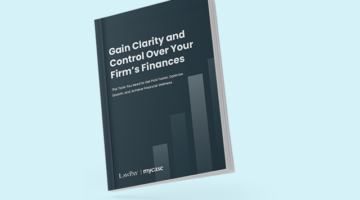
Should I go to law school?
It’s about that time of year.
Six years ago, around this time, I decided I would go to law school. Five years ago, a little earlier than this, I decided I wasn’t ready and would defer. Four years ago, around this time, I decided law school wasn’t for me and committed to a career in journalism. Three years ago, around this time, I had burned out on writing daily posts on the internet and started the application process all over again (before I had to take the LSAT again, thank god). Two years ago, I quit my job far too early and spent several unnecessary weeks sitting on the couch twiddling my thumbs and really ramping up my anxiety for 1L year, which is extremely on brand for me but not exactly advisable.
I’ve spend more time than most thinking about whether I should throw $200,000 and three years of my life at becoming a lawyer. I’ve trawled the forums and blogs and sites such as this one for hours upon hours trying to find out if it would be Worth It. (As a side note, listen to me: do not read those forums — I hope you’re young enough you don’t even know what a forum is — they’re more of a hellscape than your first semester finals study period.) I spent a lot of time soliciting advice from strangers who happened to have a law degree. A lot of them told me no, I shouldn’t. In my case, they were wrong. These are the important questions.
Do you actually want to go to law school?
A lot of people who are lawyers will tell you that you should only go to law school if you want to be a lawyer. This is bullshit advice unless you happen to know intimately what it means to be a lawyer, in which case you probably aren’t asking strangers. What they mean, I think, is don’t go to law school because you don’t know what else to do with your life, and don’t go to law school because you want to be rich. If either of those things are true, trust me, business school is shorter and the parties are much better, both before and after school. Tangentially, if there is something else you think you might want to do, try it for a while as you ponder the rest of this and see if you find yourself wishing you were a lawyer instead.
What a lawyer does, mostly, is close-read long pages of text that are very dry and analyze them. Then they argue over whether the word “and” actually means “and,” or, alternatively, means “or.” If this is your idea of a good time all day every day until you retire at 80 because no one can afford to stop working after paying for law school, welcome to the fold.

Take Control Of Your Firm’s Finances With Tools Built For Success
Position your firm for long-term growth with better financial visibility and control. Learn how to track performance, manage spending, and plan strategically—download the full e-book now.
On the public interest side, the last couple of years have somehow blessedly turned lawyers from villains to heroes. If you want to be a white-knight litigator, find some cases that interest you, then go down an internet rabbit hole trying to find the documents that those lawyers actually filed. Is that the kind of job you want? How do you feel about losing a lot? Are you becoming a lawyer to change the law? Consider policy school or just running for office.
One of the best pieces of advice I ever got was to read the book A Civil Action. I came out of it really excited about being a litigator, which is extremely not the point of the book. Don’t substitute this piece of advice with watching the movie. Both because it is not good, there’s better Travolta out there, and because if you can’t get through a book about litigation maybe you don’t want to be a litigator. To be fair, I also decided to do criminal law because I watched a lot of Law & Order and I do not yet regret that choice.
Can you afford it?
People (rightly) talk about law school and debt a lot, but there are actually two ways you pay for law school: with your money and with three years of your life. Money aside, I’m nearly 30 years old and I’m still an intern. Not only did I give up three years of salary, I also gave up three years of pay raises and promotions and professional respect to start over again. This is a little better if you don’t work for five years out of college like I did, but then you’re starting a job at 25 or 26 with basically no real-world experience.
As far as debt goes, my colleagues at this website are appropriately cynical about the cost of law school. If you go to a law school that is going to more or less guarantee you a Biglaw job, it’s probably worth it (that calculation heavily discounts the value of your soul in my opinion, but that’s a personal choice for everyone). It also might be worth it if you go to a school that will pay back your loans for you if you choose public interest (ask many, many questions about how exactly it works and whether it’s guaranteed before you commit!). It also might be worth it if you go to a cheap law school.
The reality is that it’s relatively easy to figure out how much your loans are going to cost you month to month, and what your chances are of being able to pay that much if/when you get a job. The hard part is making yourself look at those numbers and weighing if you still want to be paying that money to loan servicers 15 years down the line. It’s worth taking that seriously before you commit.
Shane Ferro is a law student and a former professional blogger. She is (obviously) a bleeding-heart public interest kid.
